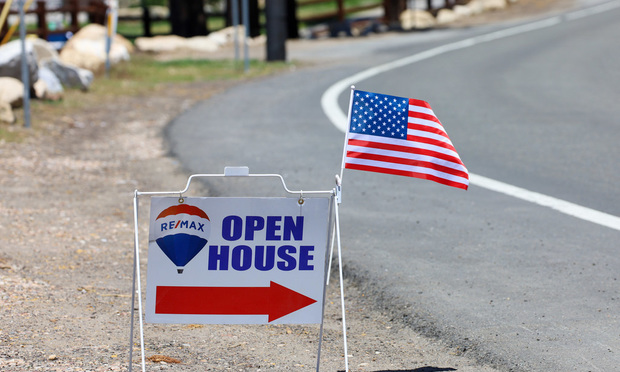Like other captive havens worldwide, Bermuda is feeling the effects of the financial crisis as well as added competition as new domiciles spring up. But regulatory changes are being made in an attempt to draw additional formations, as the island continues to adapt to the latest challenges facing the alternative markets.
Indeed, Bermuda has been actively working to attract catastrophe-related captive formations, according to William Dubinsky, a director with Swiss Re in New York. One such initiative, he noted, is new regulations for special-purpose vehicles.
Mr. Dubinsky–who is part of an advisory group working with the Bermuda Monetary Authority on SPVs–said a number of these types of captives have been launched in other domiciles, including the Cayman Islands.
“In the cat-bond area, a lot of sidecar deals have been based in Bermuda,” Mr. Dubinsky pointed out. “Over the summer, Bermuda changed its legislation that created a new class of insurers. From a statutory perspective, that might be better for cat bonds than what has been used.”
He added that while there have been a few cat bonds done via Bermuda in the past, the number has been relatively small.
A new class of insurers was developed, he said, and “all the different players in the cat bond/sidecar area” were asked to come up with implementation regulations. Mr. Dubinsky noted that an advisory committee meets periodically.
The bottom line, he said, is “they're taking steps in the right direction. With the cat-bond deals, sometimes we use captives and sometimes we don't.”
He said these deals involve unlicensed entities, “in the sense that they are simply entering into the derivatives, not into reinsurance or insurance transactions,” adding that most of the deals use captives as the bond's reinsurer.
At this point, he said, the regulation is being finalized with the Bermuda Monetary Authority “taking a very deliberate and prudent approach. I think they will have something in the next few months, and then it's up to the market to determine whether or not all this work leads to them getting more business.”
At this point, he added, “it's unclear, because there is interest in many jurisdictions.”
Whether Bermuda will succeed with the new regulations is uncertain, he said. “We've been down this path with various jurisdictions in the [European Union] and Singapore,” he said, “To my knowledge, Singapore has had no business whatsoever.”
He added that while he believes Bermuda is better positioned to become a domicile of choice on such deals, what will happen “remains to be seen.”
One reason, he said, is that while the captive managers in Bermuda “are very good, the captive managers in Cayman are very good as well. They're very experienced in cat-bond transactions, and the fees of service providers in Cayman are generally lower than Bermuda.”
Bermuda, however, has several advantages going for it, he noted, including its reputation. “Location isn't an issue,” he said, “because a presence in Bermuda is not required to do the cat bonds.”
But whatever the outcome, according to Mr. Dubinsky, “I think it's a new direction and they should be applauded for trying to do this. This is a very favorable development.”
Howard Stecker, senior vice president with Smart Business Advisory and Consulting in the New York City office, said an interesting point about the Bermuda market is that “Bermuda is the same plane ride as flying to Chicago. As far as ease of access, it's no wonder Bermuda has been so successful.” 
He added that Bermuda has been “the place where companies have gone for regulatory relief.”
Although some see Bermuda as a tax haven, he said, “the bigger drivers might be in getting to a less stringent regulatory environment, because their reserving practices are different–things like the amount of capital [required].”
Mr. Stecker explained there used to be a rule of thumb in the United States– property-casualty companies had to have a three-to-one ratio on reserves-to-capital, but “in Bermuda, it's 10-to-one.”
He added that there has been tightening of this in Bermuda, with more structuring of capital. But overall, he said, “the franchise they've built is not around taxes–it was more about regulatory structure. It's not by happenstance that seven new companies were formed in Bermuda, with $1 billion in capital, right after Sept. 11, 2001. It was principally because the regulatory structure to set up those companies was a better economic value, if you will.”
While most of those companies have since formed U.S. arms, “still, the main part of the business is in Bermuda,” he noted. “And there have been some inversions where U.S. companies became Bermuda companies, so they're not subject to tax.”
The other side of the issue is that “if you do business in the U.S., you'll wind up paying tax. So the tax benefits are there if you structure certain transactions right.”
Mr. Stecker said that changes in U.S. law would certainly impact Bermuda businesses if they were to lose their tax benefits, “but there are companies that wouldn't be affected at all”–including captives.
He said there also are a number of producers with captives set up in Bermuda because of the regulatory ease of doing business.
“Then you have large corporations that as part of their risk management practice have a captive,” he added. “A lot of their coverage is carried through a captive, and they tap in for stop-loss and other types of coverages on the back side.”
He surmised that because of the wide range of companies in Bermuda, “I don't think a change in legislation on taxes would be a death knell to that industry.”
Over the years, he observed, there have been changes in tax laws “and each iteration causes a hiccup, but people tend to restructure whatever they're doing.” While it may not be as cost-effective, he said, “the benefits are still such that the industry keeps growing.”
And because of the industry's resilience, he added, “it will figure out a way.”
At the end of the day, he said, some other jurisdictions, such as Cayman, are a little less regulated, “like Bermuda in its infancy–now Bermuda has some behemoths there. I think that allows them to move to making sure people see them as a very legitimate operation.”
He also observed that “the other thing we haven't seen is formation of some new companies in Bermuda to take advantage of some new market opportunities out there.”
That could change in a hurry, however, he pointed out. “Right now credit and capital is tight, but if it loosens, will we see another round [of company formations] like what we did after 9/11?”
Want to continue reading?
Become a Free PropertyCasualty360 Digital Reader
Your access to unlimited PropertyCasualty360 content isn’t changing.
Once you are an ALM digital member, you’ll receive:
- Breaking insurance news and analysis, on-site and via our newsletters and custom alerts
- Weekly Insurance Speak podcast featuring exclusive interviews with industry leaders
- Educational webcasts, white papers, and ebooks from industry thought leaders
- Critical converage of the employee benefits and financial advisory markets on our other ALM sites, BenefitsPRO and ThinkAdvisor
Already have an account? Sign In Now
© 2024 ALM Global, LLC, All Rights Reserved. Request academic re-use from www.copyright.com. All other uses, submit a request to [email protected]. For more information visit Asset & Logo Licensing.








